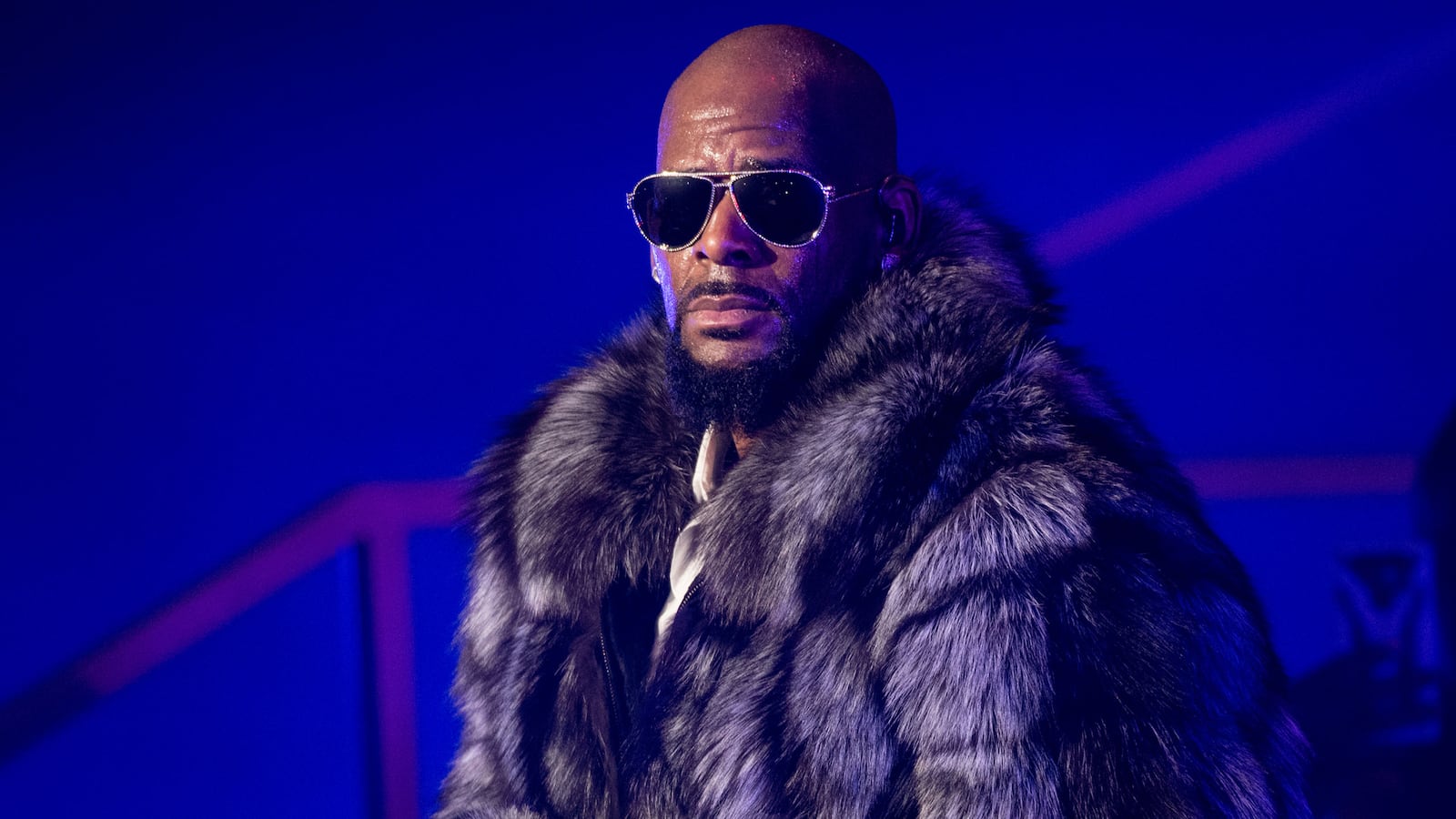The airing of Lifetime’s three-part series on the sexual misconduct allegations against musician R. Kelly on Thursday provoked a public outpouring of anger and disgust. More quietly, it also appears to have moved some sexual abuse survivors to reach out for help.
The National Sexual Assault Hotline saw a substantial increase in calls on the night Surviving R. Kelly premiered, a RAINN spokesperson told The Daily Beast. The hotline, which connects survivors to emotional support, information and resources, received 27 percent more calls on Thursday than the same day the week before.
Hotline traffic frequently increases when sexual abuse is in the news, according to the organization. RAINN saw an 147 percent increase in calls when Christine Blasey Ford testified against Supreme Court Justice Brett Kavanaugh in September, and 33 percent more after the release of Donald Trump’s infamous Access Hollywood tape in 2016.
On Thursday, RAINN tweeted out a link to their hotline and added, “Watching or reading about ‘Surviving R. Kelly’ and need to talk? The National Sexual Assault Hotline is here 24/7.”
Other leaders, including #MeToo pioneer Tarana Burke and the racial justice organization Color of Change, urged survivors to be cautious when watching the series. The official #MeToo movement account tweeted out tips for viewers, including watching with supportive friends and engaging in positive social media forums.
“i literally can't watch the r kelly doc bc it's triggering for me but just here to say eff him & protect young black girls at all costs,” tweeted model Miski Muse.
The documentary is the first in-depth TV exploration of the accusations against Kelly, including allegations that he physically and emotionally abused his partners and carried on sexual relationships with underage women. It documents how the multiplatinum artist’s career skyrocketed even as the claims against him grew, and how members of his inner circle worked to conceal the allegations.
Kelly has denied any wrongdoing and has not been charged with any related crimes.
John Legend, the only other musician interviewed in the documentary, also took to Twitter to address the public reaction and urge those moved by the series to donate to Chicago-based anti-violence organization A Long Walk Home.
“To everyone telling me how courageous I am for appearing in the doc, it didn't feel risky at all,’ Legend tweeted. “I believe these women and don't give a fuck about protecting a serial child rapist. Easy decision.”





